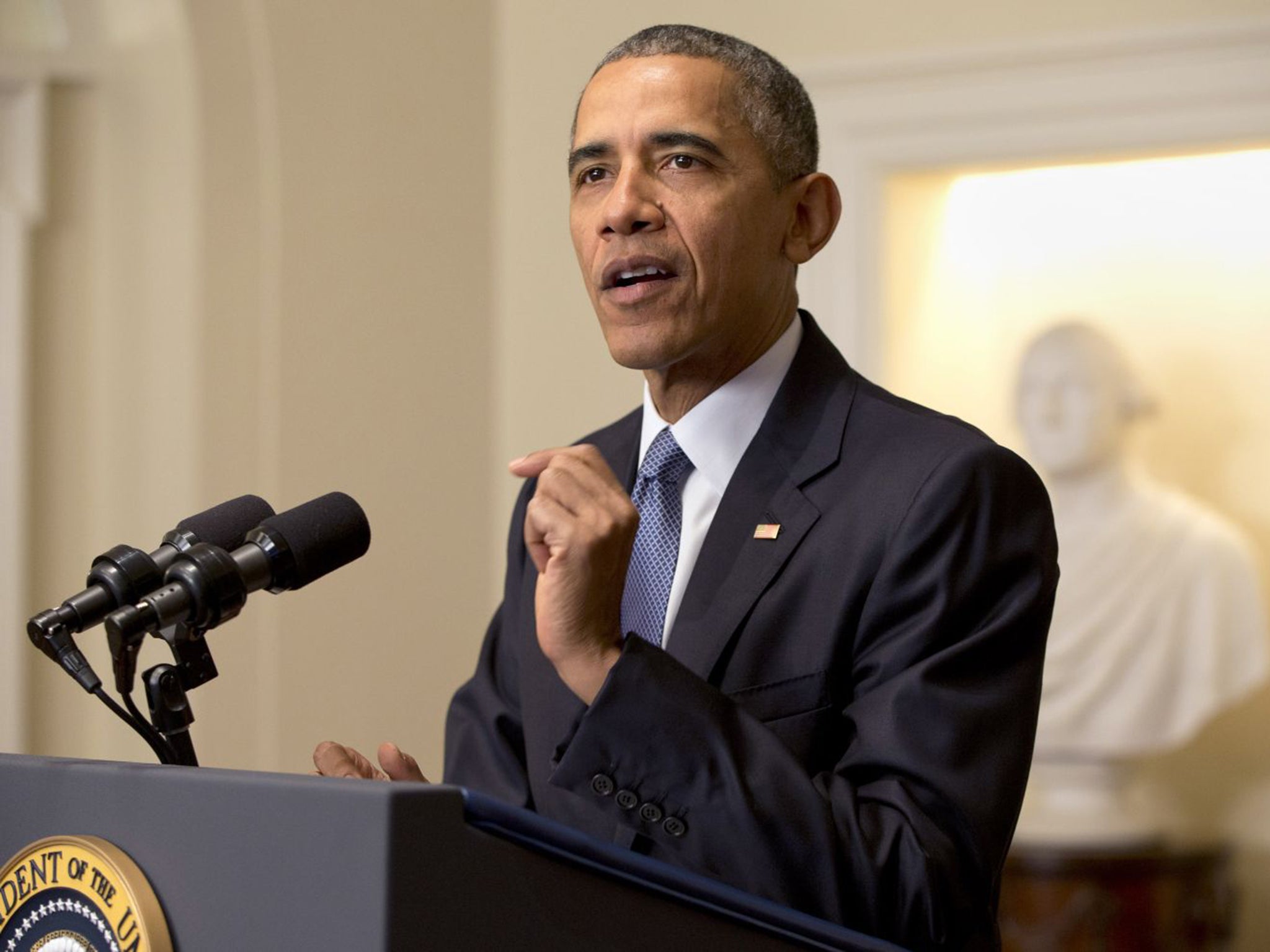Don't let national politics stand in the way of the progress made at the Paris climate conference
190 countries have agreed a new global climate change treaty in Paris - but we need new laws to make it happen

Your support helps us to tell the story
From reproductive rights to climate change to Big Tech, The Independent is on the ground when the story is developing. Whether it's investigating the financials of Elon Musk's pro-Trump PAC or producing our latest documentary, 'The A Word', which shines a light on the American women fighting for reproductive rights, we know how important it is to parse out the facts from the messaging.
At such a critical moment in US history, we need reporters on the ground. Your donation allows us to keep sending journalists to speak to both sides of the story.
The Independent is trusted by Americans across the entire political spectrum. And unlike many other quality news outlets, we choose not to lock Americans out of our reporting and analysis with paywalls. We believe quality journalism should be available to everyone, paid for by those who can afford it.
Your support makes all the difference.In a diplomatic breakthrough, ministers from more than 190 countries have agreed a new global climate change treaty in Paris. The success, which comes after many years of negotiations, is a very welcome shot in the arm for attempts to tackle global warming.
For those who have criticised the deal, it needs to be remembered that these were an enormously difficult set of international negotiations that nearly broke down, on multiple occasions, in the past. Whereas the 1997 Kyoto Protocol involved a deal for the EU states and 37 developed countries, the discussions in Paris involved developing countries too.
However, while we now have a new framework in place, honesty is also needed. As the UN concluded, the commitments made by states - important as they are - are not enough to limit global average temperature rise to 2 degrees Celsius (let alone the 1.5 degrees Celsius much discussed at Paris) above pre-industrial levels. So rather than viewing the Paris agreement as the end of the process, it must be seen as the beginning of a much longer journey that governments and legislators must now make.
The Paris deal will be most effective if implemented through national laws. The country ‘commitments’ put forward in Paris will be more credible – and more durable beyond the next set of national elections - if they are backed up by legislation. Clearly there are some countries, including the United States, where passage of legislation will be enormously difficult - if not politically impossible. Even here, however, steps taken by President Barack Obama and his successor in the White House could pave the way for success.
The remarkable diversity of domestic measures that countries have taken in response to climate change is shown in a report published this year by the Grantham Institute at the London School of Economics which covers 98 countries plus the EU states, together accounting for 93 per cent of global greenhouse gas emissions. It was revealed that there are more than 800 climate-change laws and policies now in place across the world, rising from 54 in 1997.
Approximately half of those (398) were passed by the legislative branch, and half (408) by the executive branch (e.g. policies, decrees). And 46 new laws and policies were passed in 2014 alone.
Some 45 countries, including the 28 EU members as a bloc, have economy wide targets to reduce their emissions. Together, they account for over 75 per cent of global emissions.
In addition, 41 states have economy-wide targets up to 2020, and 22 have targets beyond 2020. Moreover, 86 countries have specific targets for renewable energy, energy demand, transportation or land-use, land-use change and forestry. Some 80 per cent of countries have renewable targets; the majority of them are executive policies.
Post-Paris, the ambition must be that national frameworks like these are replicated in even more countries and ratcheted up. There are clear signs of this happening already, as countries seek to toughen their response to global warming.
What this movement towards a more robust stance on climate change shows is the scale of transformation in attitudes by governments across the world. Many countries now view tackling global warming as in the national self-interest and see that expanding domestic sources of renewable energy not only reduces emissions, but also increases energy security by reducing reliance on imported fossil fuels.
Reducing energy demand through greater efficiency reduces costs and increases competitiveness. Improving resilience to the impacts of global warming also makes economic sense. And domestic laws also give clear signals about direction of policy, reducing uncertainty, particularly for the private sector.
Far from undermining the UN talks process, this ‘bottom-up approach’ has been a decisive development catalysing the new deal in Paris. Advancing domestic measures on global warming and experiencing the benefits of reducing emissions have been crucial building blocks creating the political ‘window of opportunity’ to enable an agreement to now be secured.
And all of this underlines why legislators must be at the centre of international negotiations and policy processes not just on climate change, but also on the full range of sustainable development issues. Along with governments, they can now help co-create, and follow-through to implement, what could be a foundation of global sustainable development in coming decades for billions across the world.
Lord Prescott was formerly UK Deputy Prime Minister, Europe’s Chief Negotiator at the Kyoto climate talks, and is now lead UK Representative in the Parliamentary Assembly of the Council of Europe. Andrew Hammond is an Associate at LSE IDEAS (the Centre for International Affairs, Diplomacy and Strategy) at the London School of Economics.
Join our commenting forum
Join thought-provoking conversations, follow other Independent readers and see their replies
Comments